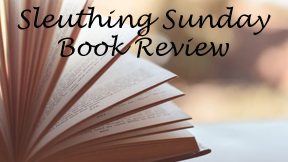Agatha Christie wraps up her six Mary Westmacott books – non-mysteries written under the pseudonym – with “The Burden” (1956 in the UK). It’s not her most perfect effort – indeed, it could be argued that it’s sometimes clunky – but it deserved better than its long delay before its 1963 publication in the US. Especially since, c’mon, this is the world-famous Agatha Christie, and the fact that she was Westmacott was not a secret by then.
A tale of two sisters
Initially, this seems like it’s three short stories stitched together, but don’t have nightmare flashbacks to “The Big Four”; the triptych is leading somewhere. Also at first blush, this seems like the blandest Westmacott title, but it turns out it does come from a Bible verse. (Most of the Westmacott titles come from the Bible, literature or poetry – as do several books written under Christie’s own name.)
In Book One, we meet Laura; in Book Two, Laura’s younger sister Shirley; and in Book Three, a totally unrelated character (for the time being) named Llewellyn. The short Book Four ties things together. The first two books play out like “A Daughter’s a Daughter,” except here we have a big sister and a little sister. Laura – a decade older — is a mother figure for much of Shirley’s youth.

“The Burden” (1956)
Author: Agatha Christie, writing as Mary Westmacott
Series: Mary Westmacott No. 6
Genres: Family drama, romance
Setting: England, 1956
Christie’s great character writing carries the day here, as she uses her familiar tropes but they feel fresh enough. Laura, who believes it’s her duty to look after Shirley, is guided by quirky curmudgeon and family lawyer Baldy. Shirley then believes it’s her duty to look after her invalid husband.
Christie writes well about how everyone sees everyone else. And they are mostly correct in their observations. This doesn’t make “The Burden” less readable, but it makes it slightly less interesting to think about, since the characters aren’t particularly mysterious.
Readers of Christie’s mysteries (which will be most Westmacott readers) might find it amusing how the possibility of poisoning via a sleeping draught overdose looms heavily in Book Two. As such, this is the Westmacott that most closely resembles a straight Christie novel.
Burden, or calling?
The Llewellyn book is wild by comparison, as we learn the 40-year-old’s story (as he tells it to a new friend over dinner) about how he was an evangelist for two decades. Now that he’s done with that calling, having given God all he can and all that was asked of him, he aims to settle into a “normal” life.
Early in Book Three, we see a rare case of a mystery coming into a Westmacott book, although it’s not a murder mystery. Rather, Christie toys with us for a while, not letting us know which of the sisters guest-stars as the pub conversation mate of Llewellyn’s. This trickery isn’t necessary, as the character journeys and studies make for good enough reading. But nor does it hurt anything.
The theme of “burdens” emerges, interestingly with none of the characters resenting their burdens. They feel – or literally are – spiritually compelled to carry these burdens, almost like a calling. It’s like there’s no choice involved.
And also, no regret. Yet regret hangs over the proceedings like the slightest mist. As readers, we know the characters could have made different choices (even though we simultaneously know its not in their natures).
Melancholy novel with a happy ending
As the final pages wound down, “The Burden” still felt pasted together to me – multiple character studies plopped into one book. A final line binds it all together like duct tape – awkwardly, kind of as a last resort, but still strongly.
Though not as polished, layered and brilliant as “The Rose and the Yew Tree,” which I can now say is my favorite Westmacott book, “The Burden” is by no means a weak way to end Christie’s six-book Westmacott jaunt.
It’s mostly neutral-to-melancholy in the feelings it evokes, but then it closes with the happy idea that Llewellyn’s soulmate quest can be spiritually guided – that a match can happen without direct work toward the goal.
Seen from Laura’s perspective, it’s problematic in the same way as Allison’s ending in “The Breakfast Club,” as it elevates a woman’s appearance above her character in an almost mystical way. (Then again, uncomfortably, we have to admit that looks do matter in society. And it should also be pointed out that Laura’s look is not really what wins her a partner. It’s just an odd embellishment by the author.)
These are maybe not the healthiest messages for either a man or a woman, if they are looking for guidance from Christie. But it’s a sweet enough one for “The Burden’s” almost magical-realism purposes. Because Laura is so grounded, and because the Llewellyn section is written with verve and detail – if not plausibility – the happily-ever-after feels more earned than it does in some Christie mysteries.
Sleuthing Sunday reviews an Agatha Christie book or adaptation. Click here to visit our Agatha Christie Zone.


